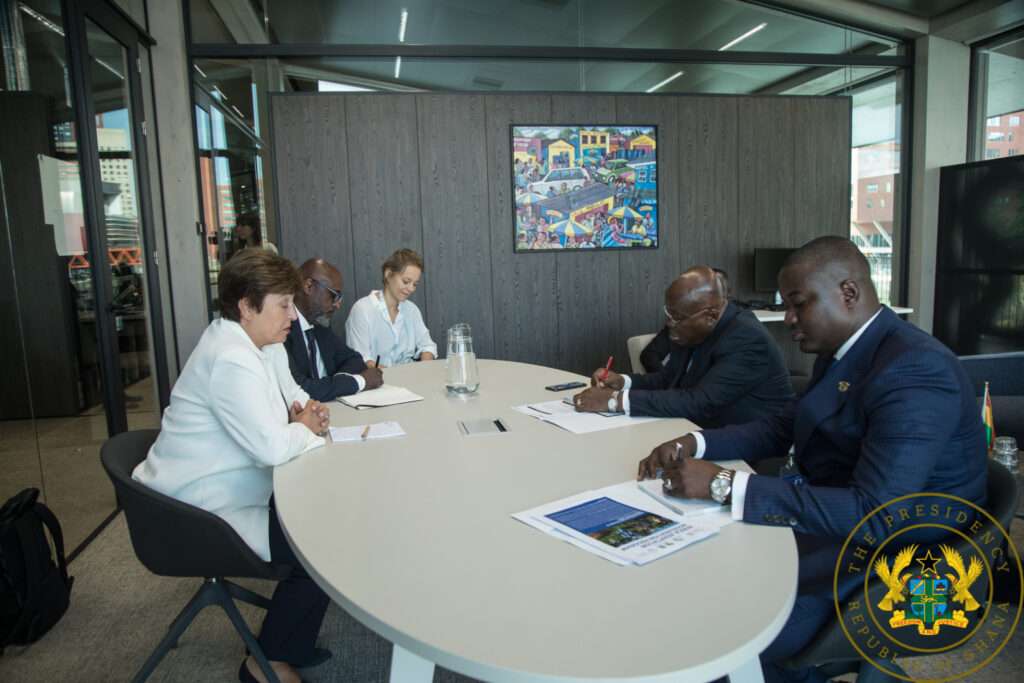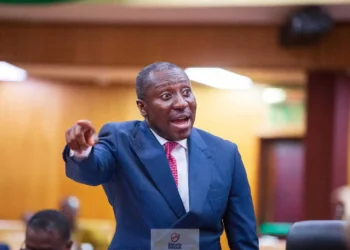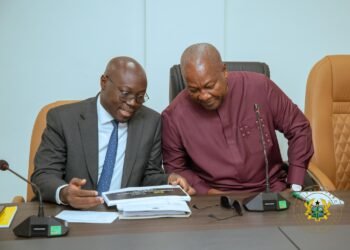Ghana has agreed on a $3 billion loan deal with the International Monetary Fund (IMF). The fund, disclosed this on Tuesday December 13, as the country battles its worst economic crisis in decades.
The Fund and the government of Ghana have reached a Staff-Level Agreement on economic policies and reforms to be supported by a new three-year arrangement under the Extended Credit Facility (ECF) of about $3 billion.
According to a press release from the IMF, the government’s strong reform programme aims at restoring macroeconomic stability and debt sustainability while protecting the vulnerable, preserving financial stability and laying the foundation for strong and inclusive recovery, was key in this decision.
The staff-level agreement, is however, subject to IMF Management and Executive Board approval and receipt of the necessary financing assurances by Ghana’s partners and creditors.
Per the statement, in order to support the objective of restoring public debt sustainability, the government of Ghana has launched a comprehensive debt operation, but said sufficient assurances and progress on this front will be needed before the proposed Fund-supported programme can be presented to the IMF Executive Board for approval.
“The Ghanaian authorities have committed to a wide-ranging economic reform program, which builds on the government’s Post-COVID-19 Programme for Economic Growth (PC-PEG) and tackles the deep challenges facing the country.
“Key reforms aim to ensure the sustainability of public finances while protecting the vulnerable. The fiscal strategy relies on frontloaded measures to increase domestic resource mobilisation and streamline expenditure. In addition, the authorities have committed to strengthening social safety nets, including reinforcing the existing targeted cash-transfer program for vulnerable households and improving the coverage and efficiency of social spending.”
IMF

Introduction Of Structural Reforms
The statement further disclosed that structural reforms will be introduced to underpin the fiscal strategy and ensure a durable consolidation. These include developing a medium-term plan to generate additional revenue and advancing reforms to bolster tax compliance.
The fund noted that the structural reforms will help create space for growth-enhancing measures and social spending. Efforts will also be made to strengthen public expenditure commitment controls, improve fiscal transparency (including the reporting and monitoring of arrears), improve the management of public enterprises, and tackle structural challenges in the energy and cocoa sectors, adding, “the authorities are also committed to further bolstering governance and accountability”.
The release stated that, “reducing inflation, enhancing resilience to external shocks, and improving market confidence are also important program priorities. In accordance, the Bank of Ghana will continue to strengthen its monetary policy framework and promote exchange rate flexibility to rebuild external buffers. As part of the authorities’ debt strategy, a domestic debt exchange has been launched. The authorities are committed to taking the necessary mitigation measures to ensure financial sector stability is preserved”.
An IMF team led by Mr. Stéphane Roudet, Mission Chief for Ghana, visited Accra from December 1 – 13, 2022, to discuss with the Ghanaian authorities IMF support for their policy and reform plans.
Ghana is facing more than 40 percent inflation, growing debt and a sharp decline in its cedi currency since the start of the year.
READ ALSO: Debt Exchange Programme: There Would Be More Programmes To Follow – Prof Bokpin























